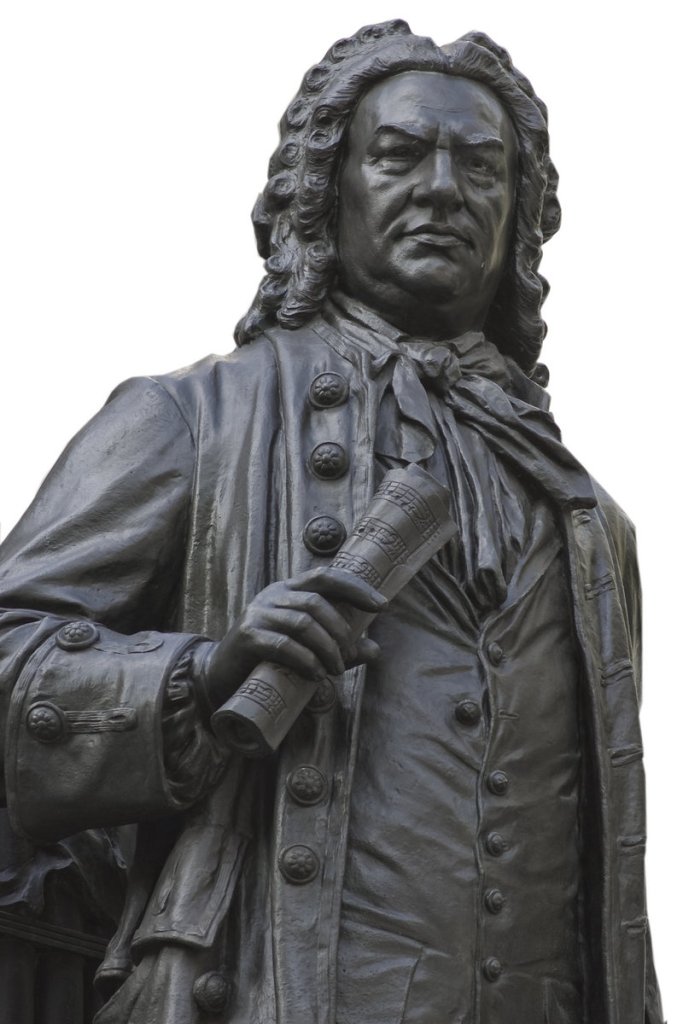Robert Moody was incredulous.
“Really?!” he asked in disbelief.
The music director of the Portland Symphony Orchestra had just been told that the Passion According to St. John, a monumental piece of choral music by Bach that employs New Testament text to describe the last days of Christ, offended Jewish people because of anti-Semitic undertones.
Moody had no idea. But there he was, confronted by a Jewish board member who told him flat-out that he would resign his position if the orchestra followed through with Moody’s plan to perform the music. (It’s important to note that the board member is not from Portland. He serves another orchestra that Moody directs.)
Moody was thunderstruck. He had performed the Passion many times, and was unaware of the controversy until last year.
So leading up to the PSO’s performance of the piece this Sunday at Merrill Auditorium, it hosted a series of forums and discussions to bring attention to the controversy and provide context for the music’s setting.
“It seems to lend itself to a teaching moment,” said Moody, who will lead the orchestra and address the offensive text from the podium Sunday afternoon.
The crux of the issue is the pejorative use of the word “Jews” and the association of the crucifixion of Jesus at the hands of Jews.
Mark Rohr, PSO bass trombonist who wrote the program notes for Sunday’s concert, called the anti-Judaic tone “at best unfortunate and, in light of history, offensive to modern sensibilities. This, of course, cannot be Bach’s fault; the text is what it is, and it was Bach’s job to set that text unchanged, and he did so with unparalleled drama and beauty.”
As have other presenters of the piece, the PSO will substitute the word “leute” (people) for the word “Juden” (Jews). The piece will be sung in German with English supertitles.
The Rev. Frank C. Strasburger, a Jewish-born retired Episcopal priest from Brunswick, said the text is unquestionably offensive. “Any Jew notices it,” he said, applauding the PSO for addressing the issue and creating “an opportunity to awaken Christians to the fact that there is an issue.”
Rabbi Carolyn Braun of Temple Beth El in Portland agreed. She recognized the offensive nature of the text, and said it was appropriate for the symphony to acknowledge it without making excuses for it.
In the context of the creation of the piece, the language was not offensive. It has become so with time.
“It’s important to say what it is and not apologize for it. This is art,” Braun said.
Bach composed the bulk of the music in 1724, and the piece received its premiere in Leipzig, Germany, on Good Friday that same year. He wrote at least three Passions, perhaps as many as five, Rohr noted. Two have survived: The Passion According to St. John and the Passion According to St. Matthew.
Sunday’s performance, during which six vocal soloists will accompany the orchestra along with the Masterworks Chorus of the Choral Art Society, marks Moody’s first attempt at conducting the Passion According to St. John. His previous experience came as a performer.
He calls it a “mammoth work” and “the big one I couldn’t take the work on until I had authority in my conducting.”
It is one of the most vivid and important works of the Baroque era, and the orchestra will include several Baroque-era instruments in its presentation.
Moody defended the decision to alter the text as the right thing to do, noting that several pieces of music have received updates to remove or change offensive words, including work by Mozart and Broadway musicals.
“Changing one word that could easily be considered in a negative light is a no-brainer,” he said.
Staff Writer Bob Keyes can be contacted at 791-6457 or at:
bkeyes@pressherald.com
Follow him on Twitter at:
twitter.com/pphbkeyes
Send questions/comments to the editors.



